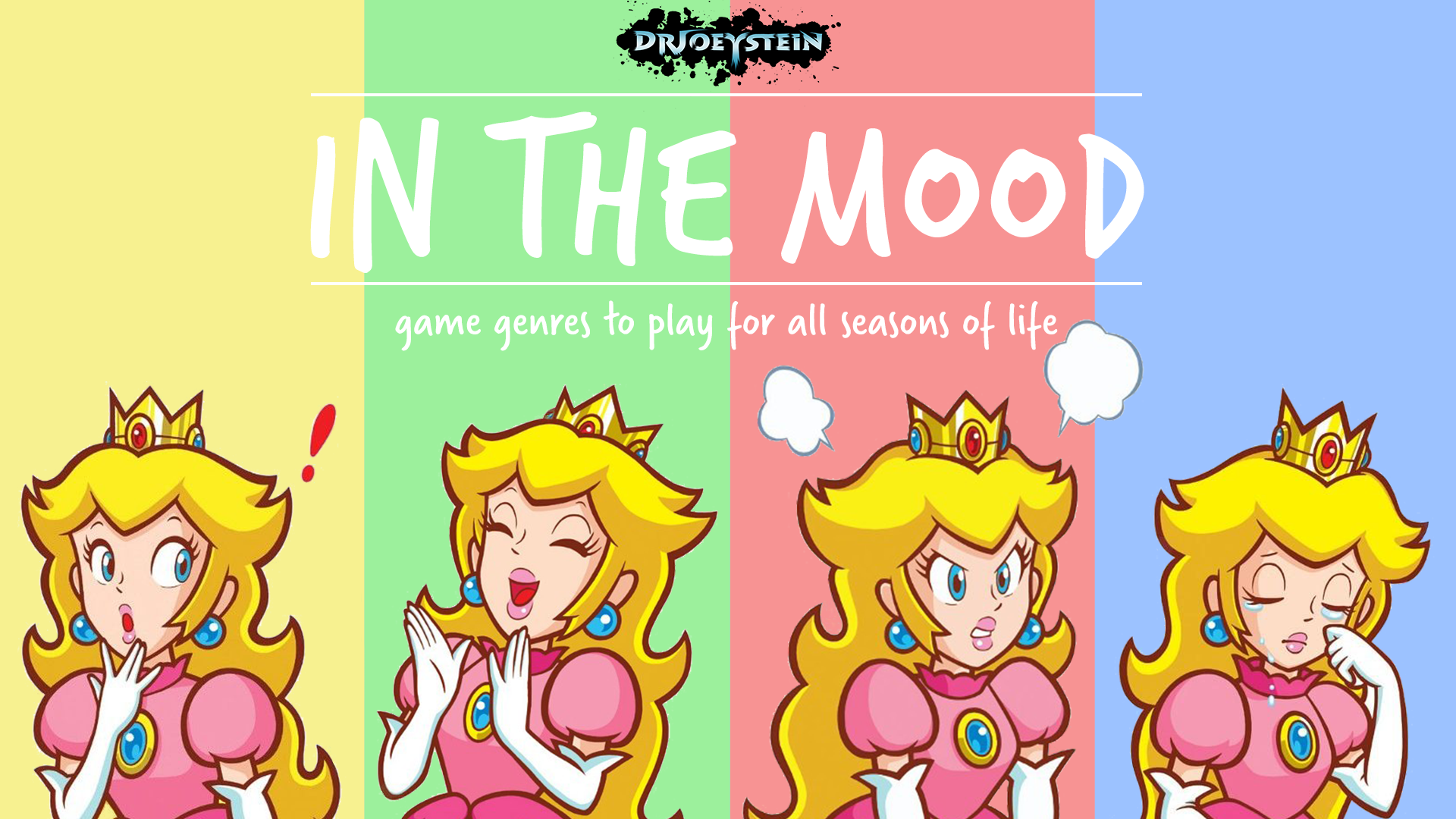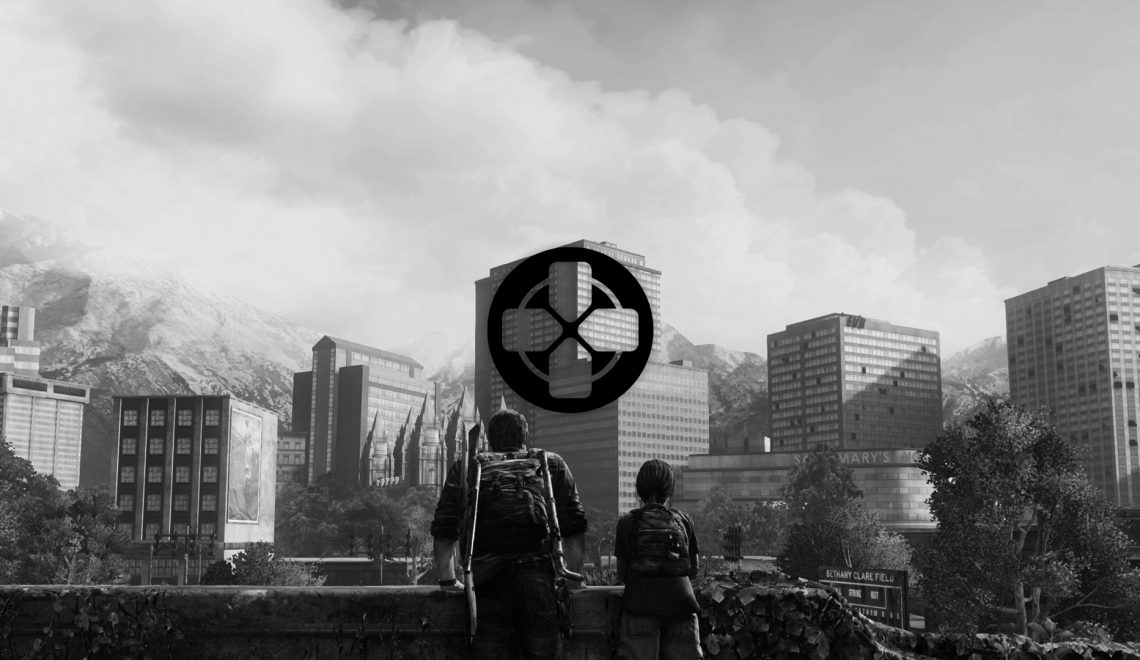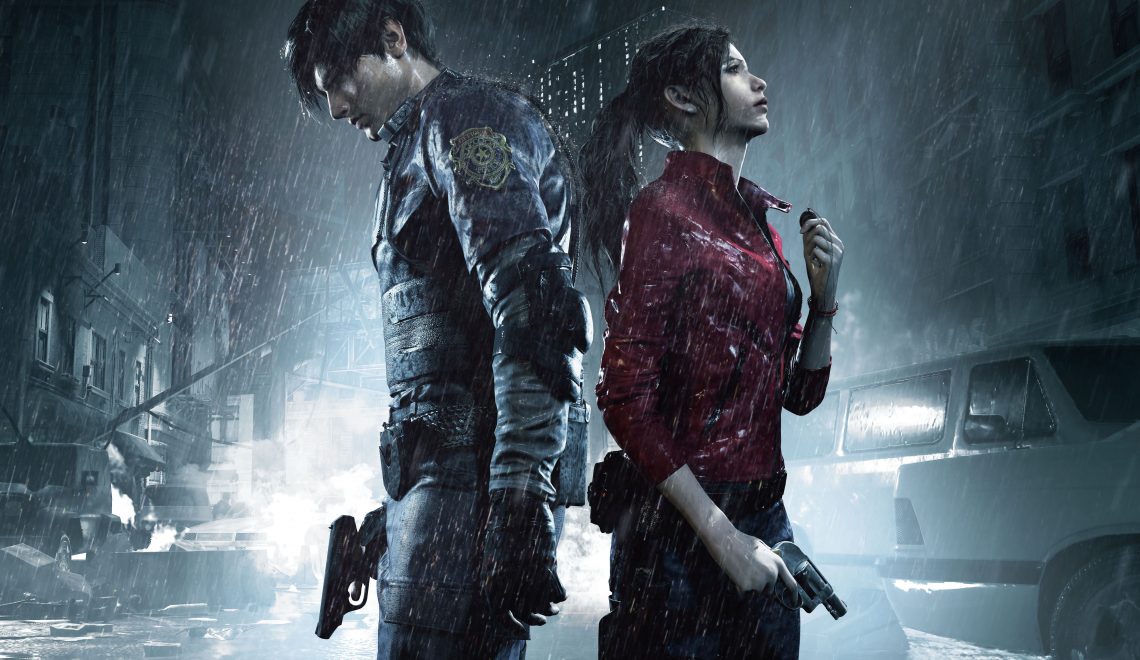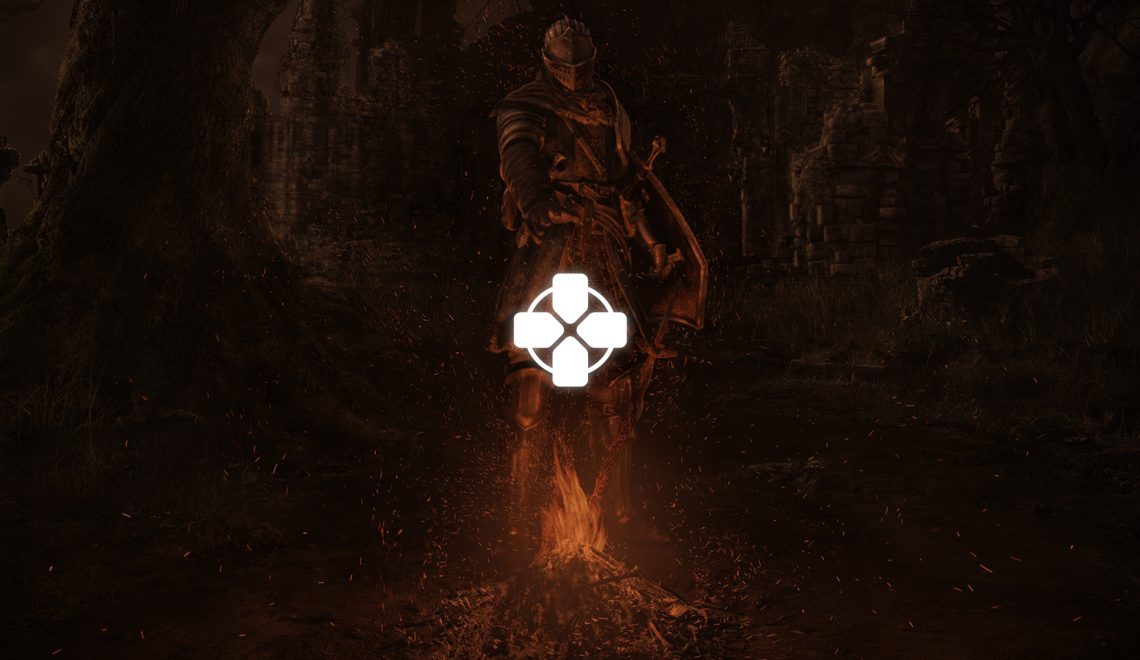
When you decide to bank your career aspirations on videogame journalism, the climb to break through with a full-time, well-paying job is like grinding your way toward beating a seemingly insurmountable boss. You acquire new skills, buff your stats, and slowly learn the ins and outs of your arch-nemesis. It may take ages and dozens of restarts, but you’ll eventually get there if you persevere…maybe, especially if the boss in question is from the Souls series.
The same kind of journey is what I’ve been pouring into videogame journalism for about four years while I’ve been in college. It’s getting to the point where I’ve been losing the will to write for my passion since there are little to no returns on investment. Have I made a mistake devoting myself to this field with all my voluntary writing? Do I need to face reality and hunker down with an average job? Where do I even go with an eccentric resume that lists accomplishments in videogame criticism and commentary? And for starters, what does my perspective even mean to anyone?
Anxiety, depression, aimlessness—emotions like these set in when I start dwelling on my doubts and fears. I’m sure you’ve felt the same about a college degree, job, or relationship. Whatever it may be, the feelings usually catch up with us, prompting us to pull away from our worries to relax and/or find some guidance from anything…anyone.
When it comes to my situation, you’d think I’d want nothing to do with videogames, but Infinite Fall’s Night In The Woods strangely called to me. It follows the tale of an anthropomorphic cat named Mae who’s come back to her hometown to discover what gives her meaning in life. What’s her purpose? Where does she find worth? How does she respond to her existential crisis? I haven’t played the entire game, but I’ve realized it’s not only a relatable experience from a story standpoint at my stage in life, but also contains the type of exploratory gameplay I love…perhaps need when I’m feeling under the weather.
I have my genre go-to’s, but I’ve noticed how particular ones will attract me when I’m angry or stressed, happy or reflective, and so on. We tend to stick with new games as they release or play games on a schedule to chip away at backlogs, but there’s a case to be made for playing them according to our mood swings. I’m a doctor (of videogames) after all, so it’s only appropriate to provide some prescriptions for videogame genres that might just complement your highs and remedy your lows in just the right ways. That’s not to say every game in a genre is fitting for a specific mood (e.g. Super Mario Bros. and Castlevania are very different platformers in tone and style), but think of my examples as generalized suggestions. Let’s dive in.
“They are rage. Brutal, without mercy. But you…you will be worse. Rip and tear, until it is done.”
DOOM begins with this command given to the player, and boy, is it one that your heart can follow with glee. The carnage you bring upon Hell’s hordes has little barriers or limitations to it courtesy of id Software. The studio intends for you to thrive and survive on the violence as long as you’re knee-deep in the blood-pumping action, speed, and chaos. It arguably makes DOOM the preeminent videogame to channel all of your frustration into with all the cathartic demon gibbing you’ll end up doing. Shooters as a whole can be a superb means to let out anger.
They’re the stereotypical examples of videogame power fantasies, showering the player with waves of diverse enemies to take out with a small (or massive!) arsenal of weaponry and equipment. Expertly weaving your way through the opposition via stealth or bombastic displays of action makes you feel unstoppable, but what makes shooters special is how they’re fixated on intensifying the antagonism that players act out toward enemies. You feel a bit detached when jumping on Goombas or using Flamethrower on a Pokémon Trainer’s Venusaur, but flattening someone to the ground with a shotgun in Wolfenstein: The New Order? Blowing up everything in Just Cause 3? That’s up-close and personal, especially among first-person shooters.
Whenever I’ve been grumpy, I’ve booted up Gears of War and Call of Duty’s multiplayer modes to pave through people with chainsaws and assault rifles. Resistance and Halo have given me equal measures of excitement facing insurmountable odds with the Chimera and Covenant. Does that mean violence is always the answer? No, but shooters make a compelling case when you need to vent through a controller.

I was intending to pair the “walking simulator” genre with stress, but limiting this to the likes of Dear Esther hardly captures other games I’d recommend when you’re overwhelmed by life. I know when that’s the case for me, I don’t want to play anything mechanically complex or reflex intensive. Those things can take a backseat as I sit back and focus on a game’s world or story instead. This can include narrative-heavy titles such as To The Moon, Firewatch, The Stanley Parable, and Telltale’s The Walking Dead episodic series. If you’re looking for more visual storytelling, Journey, Tacoma, and Abzu speak for themselves.
Are these artsy-fartsy even games as whole? If I were to throw in relaxing experiences like Everything and Proteus, would we need to start questioning whether this genre fully consists of games or not? I don’t have the answers, but I do know that these casual experiences de-emphasize gameplay for the better. As long as any given title prioritizes other “non-gamey” elements (this can include some adventure games, platformers, etc.), I’d likely place it here as a recommendation to unwind without having to worry about “gitting gud.” There’s no shame to be had indulging in games like these or even preferring them. We could do with slowing down in our busy, high-octane world.
Thatgamecompany has been especially good about developing these casual experiences with Flower as an ideal mascot. You don’t even push any buttons while playing it, but simply sway this way and that as you control petals flying through the wind with the PlayStation controller’s Sixaxis feature. Flower ends up being an uncommonly calming, meditative, and even therapeutic videogame. With all these games trying to become feature-heavy with sprawling open worlds these days, I’ve come to believe that less design is truly more on occasion.

Prone to wonder? Oh, I feel it. I often like to sit back and chew on ideas that come to my attention. I enjoy being in my thoughtful modes because there’s much in life too learn that’s fascinating. However, I can take it to detrimental levels where I torture myself with stuff that’s beyond my intelligence or mental fortitude. In a way, not being able to figure out some things creates its own kind of stress that can be deeply upsetting. The puzzle genre is perfect to engage in when you’re feeling this way.
Just like how I’d recommend reinforcing happiness with happiness via platformers (getting to that soon), puzzle games play into pensiveness to satiate it. Whether it’s the type you welcome or that’s making you feel uneasy, the genre is great for focusing your attention on more manageable problems that get your mind to healthily shift gears.
If you’re looking to challenge yourself a bit more mentally, The Witness and Braid will more than meet that desire. If you’re looking for simpler ones to mentally relax, anything from the Professor Layton series to The Talos Principle will do (puzzle games definitely cross genre boundaries). Being noticeably pensive isn’t common for me, but the puzzle genre is an obvious choice whenever questions weigh heavy on my mind.
I’m an introvert. I have a hard time being outgoing, so I usually prefer hanging out with my books, writing, videogames, and the like when I have free time. As depressing as that may sound, it belies the fact that I get in voraciously social moods where I feel like talking with close friends for hours on end. It just has to be at the right time with the right people. However, sometimes I need a kick in the pants to meet new people and let loose. I’ve noticed fighting games have the power to do that.
Whether it’s getting some people together from work to hash it out in Smash or participating in Street Fighter tournaments with the pros, an unrivaled sense of community surrounds this genre. Other social and competitive scenes with MOBAs and shooters can’t quite match it with the same life and energy. Fighting games make you feel like you can better pick up on what someone’s like through the characters they pick and how they play. Not only that, the way the sparks fly between two people in-game is unique and impactful, prompting deep discussions about how someone handles their characters, why they use certain moves and combos, etc. It’s much like two partners in a fierce dance: they have to know each other well if they’re going to perform perfectly, and players can end up doing the same thing with fighting games. Even more so with titles that make way for tag teams! People being in tune is the only way stuff like the wombo combo have been made possible.
There’s a camaraderie and passion to be found in this genre that can’t be rivaled on a social level. Even if someone doesn’t know how to play well or is just spectating, the emotions and fun can still ride high because – disregarding skill – we love competition. Rivalries and anger will naturally arise, but you’re nevertheless going to be lifted from loneliness if you take advantage of fighting games’ power to get people together and form friendships.
Platformers are rays of sunshine among videogames. They usually take place in colorful, imaginative places with innocent stories, cheery music, and cartoony art directions in tow. They’re games that invite players of all stripes with the universally appealing control scheme of simply moving and jumping around (with a couple other mechanics thrown in here and there). An unadulterated charm is intrinsic to the genre from the 3D worlds of Spyro the Dragon and Banjo-Kazooie to their 2D counterparts with Yoshi’s Island and Shovel Knight. Overall, they’ve got welcoming approaches to collectables and challenges. They’re intuitive and easygoing.
Super Mario Galaxy is my favorite videogame. One of the reasons why is that being in its world (or should I say worlds?) lifts my spirit. Platformers like this one aren’t concerned with making sense or being deep, but are usually designed with “fun” at the helm being achieved through mechanics and level design that, in turn, shape everything else. Not the other way around. It’s something that Shigeru Miyamoto-san understands well, and while he has a number of pull quotes worth citing, this one from a Famitsu interview gets to the heart of what I see in many platformers.
“A game that keeps a smile on the player’s face is a wonderful thing. […] Spread the fun of games to everyone. To do this, we must return to the beginning, to recapture the essence that made people who enjoy games even now enjoy them in the first place.”
I find myself personally drawn to this genre when I’m having a good day and want to keep that rolling, but I’ve also found their carefree nature a massive relief when the troubles of the world weigh heavy on my mind and heart. People like to escape from reality, even from playing videogames that are serious and dark. Platformers are often their sanctuaries of joy.
Depression dulls us. We become apathetic and discontent with ourselves, longing to be better and lifted out of trying circumstances. You’d think I’d recommend platformers again as a counteraction, but playing games that ooze with happiness while I’m sad is like trying to forcibly cheer myself up; it’s not going to help and will only make things worse. That may not be the case for everyone, but I’m not drawn to these games’ whimsy and childlike innocense when I’m depressed; I’m not in the mood for such things.
I remember visiting the top of a ridge in the Pennine Alps called Gornergrat. I didn’t have a great night when I slept up there, but as I surveyed the world around me at the peak of dawn, wanderlust shook my whole being of its troubled thoughts and feelings. It’s not that what was presented to me was “happy” in itself, but what I thought I could do in my surroundings that pushed out my sorrow. I felt like hiking for hours at that moment. Imagine all the wondrous surprises and sights I could find if I did!
In other words, to discover and explore is part of what drives us as humans, so it’s not happiness increasing happiness here. It’s purpose and curiosity that pave the way for doing things that create happiness within you. Adventure games were made for this.
The Legend of Zelda: Breath of the Wild tells you to just “go” and do what you like from the start. Purely open worlds are freeing in how they don’t constrain you to the usual forced paths or objectives, but ask you to follow the winds of adventure and your own curiosity. There’s something magical about inhabiting worlds that beckon you to go on adventures on your own terms, and even when the experiences are linear, the treasure-hunting feel of games like Tomb Raider and Uncharted are delights as you pick apart their carefully crafted environmental puzzles and beautiful worlds. I often get distracted from moving onward since I scavenge adventure games’ levels with an explorer’s heart, especially if we’re talking about more narrative-heavy games with rich lore embedded in the environments and characters.
I often tell people that Skyrim is the quintessential game to play whenever you have nothing to do. Just get lost in it and relish in that. But upon further reflection, I’d say that feeling has been misplaced. My wanting to play that game doesn’t arise from boredom, but from being discontent. Even sad. You could say climbing the slopes of the Jerall Mountains reminds me of my time at Gornergrat. Both of these journeys and rewarding views equally rouse my spirit.
You can’t play good survival-horror games and not be wracked with tension. I remember going through Resident Evil 3: Nemesis and feeling an ominous dread permeating every single corner I turned in Raccoon City’s streets. The titular antagonist shows up when you least expect it, and that’s not the end of your worries as you wrestle with zombies and low supplies. My point is that this genre doesn’t give you a pass. You have to have your trigger fingers at the ready for the inevitable ambushes and jump scares. Since each bullet, health pack, and miscellaneous supply is essential for pressing onward, you’ve got to be keen and patient as you scavenge your surroundings for means to give even the tiniest boosts to your disempowered character.
You may be puzzled as to why I’d recommend survival-horror when boredom plagues you. The videogame medium is all about quelling it, right? Well, I’d certainly agree with that, but I diverge when it comes to which genres are most effective at accomplishing that. Unlike many other genres, it’s possible to play them without fully paying attention. Shooters, platformers, and MMOs can let you slip into autopilot where you go through the motions with simple control schemes and expected encounters, but survival-horror naturally shocks players out of this passivity by demanding them to stress out about resource management, value every ounce of ammo and health they have, and so on.
That being said, I’m talking about real tedium when you’re actually bored to tears. It can even occur when you become too comfortable with other videogames, so go and try your hand at Dead Space, Alien: Isolation, or The Evil Within. You’ll be scared out of your complacency. The genre is alive and well in these stressful yet invigorating exercises in skillful discipline.
Everyone doesn’t like to admit they feel like failures in comparison to other people. It’s stupidly self-defeating since talented people I look up to will often say they’re depressed because they’re hardly as good as they could be at their craft. When I hear that, I think, “Gosh, what does that make me?” Even when we know that the only person we should focus on is beating ourselves, we still can’t escape from beating ourselves up. The climb toward self-acceptance and self-improvement is a slow one indeed. We never fully reach where we want to be because our self-imposed standards are always being lifted.
Perhaps there’s something to be learned about pride from all these “self” issues, but my point is that living up to our aspirations is hard and sometimes impossible, leaving us in bouts of insecurity. That’s where RPGs come in to help mitigate this.
Let’s use the Pokémon franchise as a demonstration. You always start with the classic dream of becoming a Pokémon champion: the master of a region who’s beaten the best of the best. When you earn the title with a full team of level 40+ Pokémon at their highest evolutionary forms, it’s striking to think back on how you started out with a baby starter in your quaint hometown. Many genres have leveling systems, skill trees, and increasing movesets, but much of these elements have been plucked from traditional RPGs like Pokémon. They’re stories where we make legends out of our characters, paving unique paths toward victory with playstyles and preferences validated through persistence. What is role-playing after all, if not quicker wish fulfillment by living out dreams to the fullest through imagined lives?
Skyrim, Guild Wars 2, Destiny, and Stardew Valley couldn’t seem more different from one another, but they can all be distilled down to the universally appealing goal of this genre: to provide you with deeply personal senses of accomplishment through character development. We have a lot to thank Dungeons & Dragons for since it gave fantastical, compelling shape to the childhood fantasy of “playing dress-up.” When we’re kids, pretending to be astronauts, soldiers, and what have you inspires us to aspire to those dreams. We normally have to be realistic in maturity, but applying the hope and determination of that outlook is nothing if not motivating for us to excel within our limitations. That’s why RPGs succeed at squashing insecurity.
As I said, many of these games cross over in terms of genres. I’d honestly recommend some platformers when you’re sad (like RiME) or shooters when you’re feeling lonely (Overwatch). This list is hardly exhaustive or concrete, but at least it gets a ball rolling on playing games according to our emotions.
We’re fickle beings. Perhaps our playing habits should ebb and flow alongside the ups and downs of our lives.











